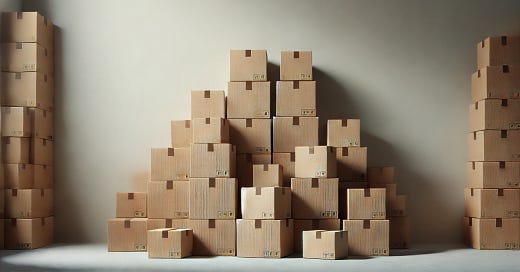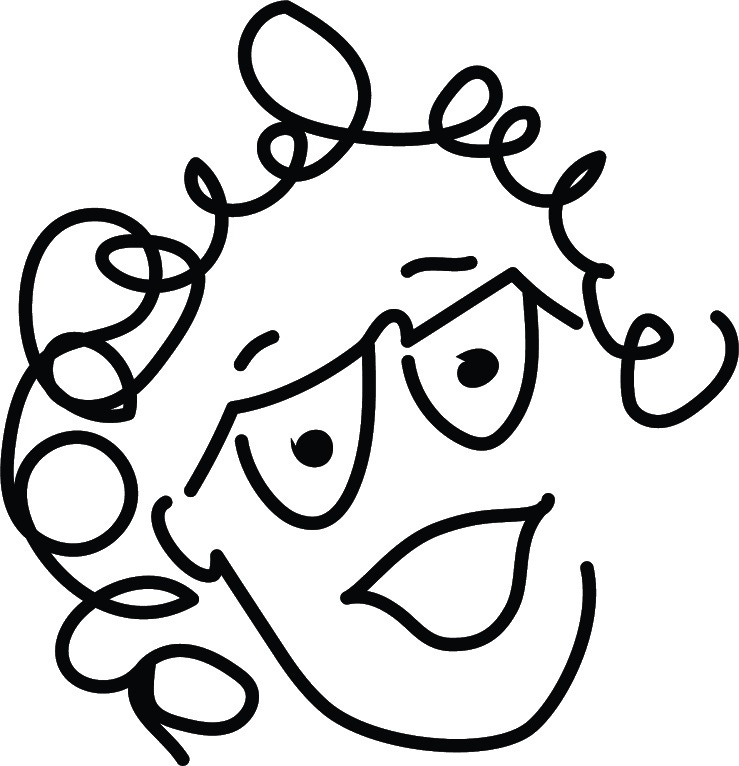I spent the first weekend of 2025 at my desk. Every drawer was open. Years of old files filled the wide bottom drawers—clips of past work, loads of markers and pens, dried-up glue sticks, and old credit cards I hadn’t yet cut up. My drawers were organized; I knew exactly where everything was. But I had more packs of Post-its than I could ever use in a lifetime, along with a mountain of clutter that was weighing me down.
Once I cleared it out, I felt lighter.
Clutter doesn’t just clog up our living and workspaces; it sticks in our minds, weighing us down and adding to our anxiety. It’s directly linked to our overall well-being. Research backs this up: studies show that a clutter-free environment reduces stress and boosts focus. When we’re surrounded by “stuff,” our brains feel overstimulated, leading to overwhelm.
Clutter can even impact memory, contribute to poor eating habits, and decrease impulse control. It increases the risk of developing mood disorders and interferes with concentration and decision-making. It also stunts creativity, lessens productivity, and drains our energy.
Think of the time you spend searching for lost items or buying new ones because sorting through the clutter feels overwhelming. Some estimates suggest that managing our lives around clutter costs us five percent of our time. I don’t want to give up that kind of time. Imagine if you had to pay five percent of your income every month—that’s a significant chunk. Clutter costs us in much the same way.
Let It Go
Sorry for the earworm, but we must release the things we no longer need if we want to feel greater calm and clarity.
Every time I walk through my garage, I freak out a little. Stuff is piled up—well-loved stuff, things that have been part of our lives for decades. Stacked, packed, and racked. But it’s too much.
The sheer volume has kept me stuck. What do I do with it all? Is it okay to throw some of it away? Sure, some things are too beat up to be useful, but others can be given away—and that’s an important way to help others.
On my podcast, Polly Campbell, Simply Said, I spoke with Tracy McCubbin, author of Making Space, Clutter-Free. She explained that our clutter often reflects emotional roadblocks. Releasing it can free not just our homes but our minds, too. For those weighing what to keep and what to release, McCubbin offers a helpful checklist for those who sign up for her newsletter.
And those items you decide to part with? They could be exactly what someone else needs. By posting items on Buy/Sell/Trade groups, free swap sites, or donating them to nonprofit organizations or shelters, you ease your load and help others. Over the years, people have gifted me used furniture, baby items when my daughter was small, kids’ bikes, and all sorts of things that made a difference. It feels good to pass things on, knowing they’ll help someone else.
So, let’s start small. Pick one drawer, one shelf, or one box. Let go knowing you’re making space for what truly matters—peace of mind. And if someone else can use it, pass it along infused with all that good energy.
-p
Polly Campbell, Simply Said is a reader-supported publication. That means I don’t get paid for the hours of research or writing I spend on these pages unless you become a paid subscriber. I’d be so grateful if you did. Please, hit the “Subscribe now” button above and become an annual subscriber for less than the cost of one margarita a month. My intent here is to leave things a little better, to empower and inspire, and to help us all become happier, healthier people so that in our own unique ways, we can change the world. I believe in us. Thanks for helping me continue this work.






I find Buy Nothing groups on Facebook are great to give away used stuff. I try to keep doing it all year as has become my habit. Your discards are someone else’s treasure.
Love the fact that you suggested donating rather than selling, Polly. :)